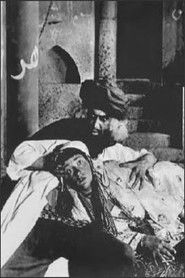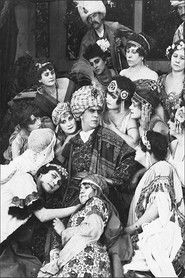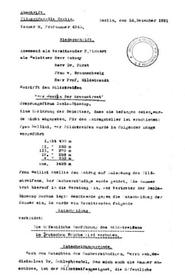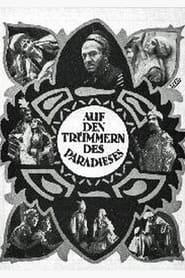detail profile erwin baron

Erwin Baron
Erwin Báron
atau dikenal sebagai
Riwayat Hidup
Erwin Baron was born in 1878 in Berlin, Germany.
He was an actor and director, known for Die Geliebte Tote (1919), Die Wittenberger Nachtigall (1913) and Lorbeerbaum und Bettelstab (1913).
He died on 30 May 1924 in Berlin, Germany.
Info Pribadi
Peran Yang Di Mainkan Erwin Baron
 In the wild hardly explored mountains...
In the wild hardly explored mountains...Die Teufelsanbeter 1920
In the wild, hardly explored mountains of Kurdish country lives the mysterious society of the Jesidi , who are called the devil worshipers by their opponents. In these mountains, shaded by dark fir trees, revenge and hatred reign and constant struggle between the countless races and sects. Strange festivals unite the fervor of thousands, crowned by the dramatic sacrificial death of one of their holy men. And yet, even in these pictures, which are filled with tremendous passion, there is no lack of warm humor and a cheerful, strong forgiving nature that leads everything to a liberating end. The film is believed to be lost.
 Caravan of Death German Die Todeskarawane...
Caravan of Death German Die Todeskarawane...Caravan of Death 1920
Caravan of Death (German: Die Todeskarawane) is a 1920 silent German film, it was an adaptation of the latter half of the Karl May novel From Baghdad to Stamboul, and is now considered to be lost. The film featured Bela Lugosi playing an Arab Sheik pitted against European travellers in an adventure story set in the Sahara. It was the second of three films released by Ustad based on desert adventure novels by Karl May. Although Karl May’s widow praised the film, critics were unimpressed and it was a commercial failure.
 The film depicts the early life...
The film depicts the early life...The Wittenberg Nightingale 1913
The film depicts the early life of the reformer Martin Luther and was produced by the Berlin and Vienna-based production company Rubin-Film. The premiere took place on September 1 1913. The showing of the film in Austria was banned because the film was likely to offend religious sensibilities. On April 20, 1921, following a complaint from the producer Báron, this decision was overturned by the film inspection authority with the restriction that the film “may not be shown in front of young people”.
 A little girl falls into the...
A little girl falls into the...
